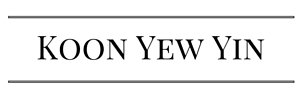(This post was originally published at The Malaysian Insider)
Recently a political commentator who is also the head of an NGO has commended the two most vociferous Malay NGOs in the country, Perkasa and Isma, as deserving “applause” as they have been “very effective in their campaigns… in defending the rights of ethnic Malays” (see “Who is the Leader” in The Star and The Malaysian Insider).
The commentator is correct on a few points such as the fact that these Malay organisations have become potent pressure groups and that their influence on Umno has been “palpable”.
But I do not agree that they deserve “applause” as “their strategy has been… brilliant” or that Malaysian civil society “has a lot to learn from these two organisations in influencing public policy”.
Firstly these are not ordinary NGOs. Their patronage and support comes from the very top of the Malay political elite, much of it hidden from public view.
The fact that Dr Mahathir is the patron of Perkasa and that Tengku Razaleigh was willing to speak at Perkasa’s recent annual meeting speaks volumes of why Perkasa has been able to garner publicity and support.
Although this is less true of Isma, it is undeniable that without high level political patronage (also from the civil service) these organisations will be no different from the other Malay groups that have sprouted up recently to articulate hardline racial and religious positions.
Secondly, Wan Saiful has written that he finds no “hard evidence” to prove an official link to Umno. Well, if he is expecting Umno’s open endorsement to be found for the events, rallies and press statements of these two organisations, then he will find no such “smoking gun”.
But then he is also no Sherlock Holmes if he is checking for tell-tale finger prints to be lying around for the non-Malay public to be alarmed by or for suspicions of direct collusion between Umno and these organisations to be confirmed.
Government support for Perkasa and Isma
As any one – even a newcomer in politics – knows, there are NGOs and NGOs. Perkasa and Isma are what are derisively called “GONGOs” or government-linked NGOs. In undemocratic societies, GONGO’s receive government support in many ways including:
- access to the official mass media
- access to government funding
- access to government personnel
- donations and other material support from government linked bodies (GLCs, etc)
- affiliated membership in government and government influenced bodies
Invariably large sums of money change hands (usually quietly and beneath the radar) in return for NGO support and lobbying of issues that the ruling political party is reluctant to endorse publicly for fear of ruining its “moderate” or “democratic” or “liberal” image.
Such NGOs are also often used to mobilise support against opposition parties or organisations that are seen as critical of the government’s policies.
If Wan Saiful is in doubt on collaboration and back scratching between Umno and Malay/Islamic extremist organisations on issues such as PPSMI, the New Economic Model, Malaysian Education Blueprint, Allah debacle, Bible seizure, Syiah in Malaysia, the reintroduction of ISA, and the infamous Tanda Putera film, then all that he needs to do is to instruct his staff in IDEAS to undertake a content analysis of the official Malay media (Utusan, TV3, Berita Harian, Radio Malaysia) and to compare the amount of coverage and space given to these organisations and their positions with that provided to other NGOs, including his own!
This is Perkasa’s and Isma’s so-called “brilliant” strategy – government repetition of their lies and untruths and alarmist sentiments aimed at frightening Malays into believing their rights are being stolen from them.
More than Umno leadership is at fault
The main point in Wan Saiful’s commentary though is not so much his admiration for these two organisations but to lament the lack of leadership which has led to these two organisations “literally [having] a governing party delivering their agenda through government.” He has blamed Umno’s top leadership, especially the Prime Minister, for this situation.
I agree that the prime minister has been woefully weak in standing up against the detractors of his own progressive and moderate vision for the country. But Wan Saiful is wrong in implying that the radicalisation of race and religious relations, and rise of Perkasa and Isma, is a development which the larger Umno leadership is averse or opposed to.
Instead it is one which Umno’s broad based leadership approves and accepts. Hence the encouragement of proxies such as Perkasa, Isma and others is because Umno see them as key to the survival of its own political supremacy and authority. It is also a strategy which many educated Malays – including so-called progressives and moderates – endorse or are not opposed to.
Sad conclusion
This is the saddest part of present day Malay political development in the country – the deafening silence of Malays as a ketuanan Melayu and Islam ideology is charted and imposed.
It is one which they – not so much the non-Malays – will live to regret since it is their own, and their children’s lives, that will be the poorer for the failure to stand up against the ultra nationalist bigots and religious zealots who are encouraged to run rampant in Malay society.
